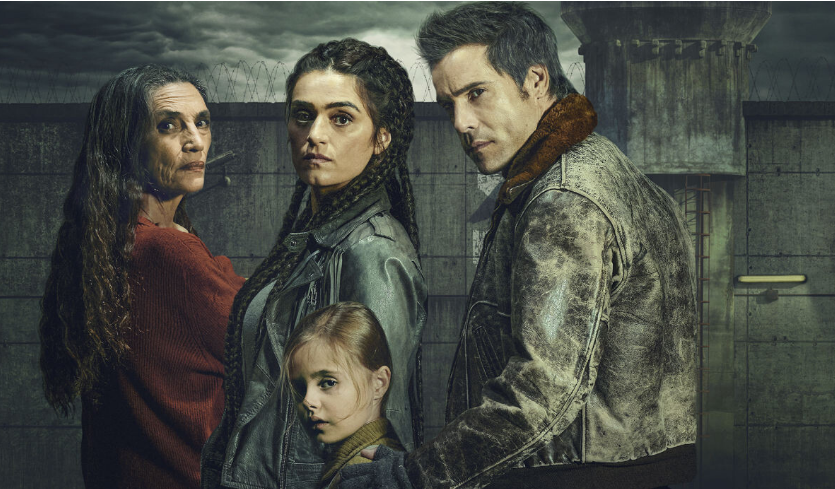
‘La valla’ has been one of the most notable (and in part, unexpected) successes of all those that Spanish fiction has brought us in 2020, in a year full of premieres as unique and different from each other as ’30 Coins’, ‘Homeland’ or ‘The Poison’. It has been a premiering week after week on Antena 3 open-air (after going through Atresplayer at the beginning of the year) and a day later on Netflix, where it has invariably occupied the lists of the most viewed by viewers.
Its mixture of disparate but complementary ingredients (from the family drama to the thriller with political overtones, going through science fiction in a recognizable and near future) has been intermingled with its almost casual reflection of reality in times of pandemic that sometimes costs us differentiate from so many dystopian parables. ‘The fence’ has arrived in what has unfortunately been a horrific year in the real world, but which has allowed us to demonstrate that fiction always spins finer than we think… even unintentionally!
We have compiled some elements of ‘The Fence’ that make it special. The combination of all of them in very specific doses is the master recipe for your success. This is how the narrative springs from one of the Spanish series of the year work.
Mix of genres
‘La valla’ tells how, in a near-future Spain in which social classes are separated by a huge fence and society is completely subservient to the army, a family fights to recover their little daughter, kidnapped and victim of terrible confinement and experiments. Perhaps in her blood is the secret to ending a terrible pandemic that has decimated the population in combination with the scarcity of natural resources.
As usual in so many family-oriented Spanish fictions, ‘La valla’ plays on combining genres and styles: the drama of everything related to the girl (Laura Quirós) and the memories of the grandmother (Ángela Molina); action adventure with rescue maneuvers and confrontation with the powers that be; something of romanticism with a morbid point, since the father of the family (Unax Ugalde) is a widower and the character of Olivia Molina, sister of his dead wife; and all seasoned with some social criticism in the vision of that bleak future.
Dystopian Spain
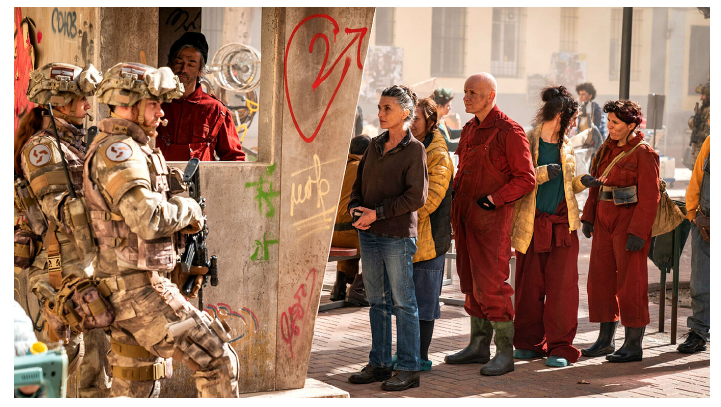
The pessimistic future, a dark derivation of the present, is a science-fiction convention that, as ‘Cyberpunk 2077’ shows, would already be there. Perhaps a less hackneyed (and conservative) view of the future would be refreshing; For example, there are currents of science fiction that claim the opposite side of the spectrum, utopias, as a way of looking at the future and criticizing the present with fewer platitudes than dystopias.
But the point is that dystopias continue to function, and with the same springs that George Orwell’s ‘1984’ already established more than seventy years ago: in ‘La Valla’ we have a militarized Spain after the Third World War, in a perpetual state of emergency and with the planet gradually collapsing due to the scarcity of natural resources. All the conventions of the dystopian genre are in ‘The Fence’, from top-down violence to the use of propaganda to wash brains and consciences, and without a doubt that makes it a recognizable and comfortable fiction.
Alert: Virus
Amazingly, time coincided by chance, but ‘La Valla’ has connected with the situation in Spain (and the rest of the world) amazingly. To begin with, the inclusion in the plot of a devastating virus of semi-unknown origin. In the series, it is infinitely more deadly than in reality, but it is inevitable to see ‘The Fence’ with a bitter feeling of “What if what we are experiencing got out of hand?”
The phrase “State of emergency”, something that had rarely been experienced in Spain, is often pronounced in the series, as is also the case with the use of masks, people in isolation suits spraying people who maintain orderly lines with disinfectant to undertake daily tasks… ‘La valla’ does not speak of COVID-19, but it is clear that it has landed at a particularly sensitive moment regarding the issue of massive infections.
Airs of postwar
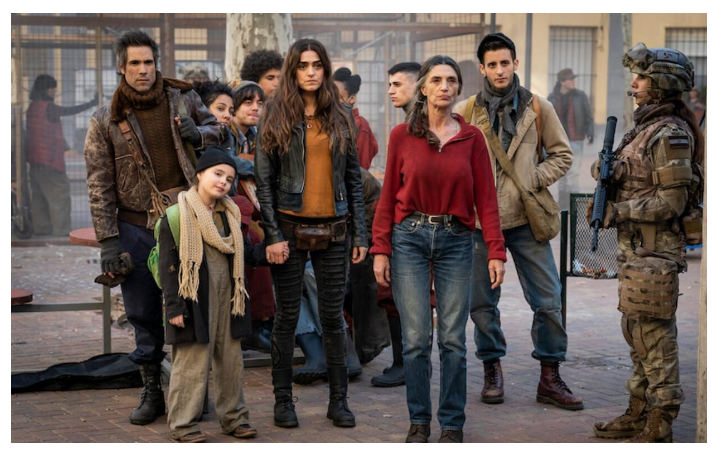
Of course, the subject is not explicitly put on the table except with some reference to fratricidal wars of the past, but with the images of the besieged streets, it is inevitable to think of so many films set after the Spanish Civil War. And not only because of the other photography that runs through the series and the tone of despair. Or the military control of the population and the interference of the army in the affairs of the state
There is also the focus on children, some of whom are orphans and others confined to hospitals and orphanages, and who are a reflection of the child generation that suffered so much in the postwar period. Ration cards and queues to get bread. The suspicions of the neighbors, among whom there are informers and collaborators. The constitution of a resistance that faces the situation, with clear urban guerrilla dynamics inspired by real circumstances. All this adds up to a vision of the conflict of warlike airs and parallels with circumstances that are still recent in our history.
The Écija touch
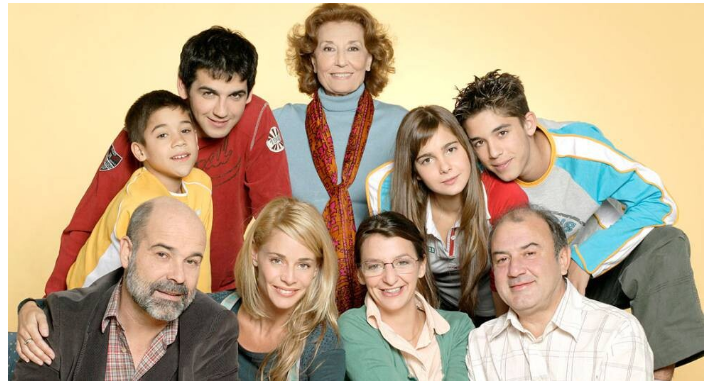
The creator, executive producer, and screenwriter of ‘La valla’ is Daniel Écija, an essential proper name to understand the Spanish fiction of the last two decades. Since his first great success in 1995 with ‘Médico de familia’, his career has included massively popular productions such as ‘Periodistas’, ‘7 vidas’, ‘Un paso adelante’, ‘Los Serrano’, ‘Los hombres de Paco ‘, ‘Aída’, ‘El internal or ‘Águila roja’, among many others.
His is the combination, house brand, of genres and actors from different generations to appeal to different age groups among viewers. And without a doubt, the series agrees with the need to restrict the duration of the episodes to one hour, without reaching the kilometric durations that weighed down its creations a few years ago. He has a job after a couple of decades in the middle, and it shows in a series that is more agile and successful than usual.
The Netflix-Atresmedia combination
Just finished its successful run on Antena 3 and Netflix, where it has been released week by week and practically simultaneously (in an unusual agreement, but very juicy for both platforms, in the streaming-only one day after it went public ), ‘La valla’ closes its first season with very notable audiences: it has rarely dropped below 10% share on Antena 3 and has remained in the top of Netflix’s most viewed for 13 weeks (and it remains there, even though already completed).
Undoubtedly, even though its time on the Atresplayer platform was not so spectacular -it premiered at the beginning of the year without making too much noise-, its arrival at the broadcast in September 2020 coincided with the post-summer moment of the pandemic and the indisputable benefit of Netflix’s support in its broadcasting have made it one of the most watched Spanish series of the year. A very lucky combination of thoughtful strategies and a sense of timing.
An excellent year for Spanish fiction
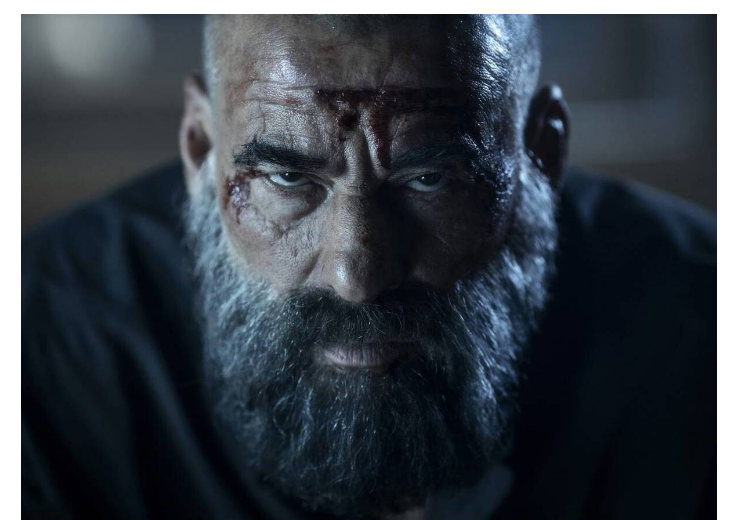
Streaming platforms and the multiplication of competition have forced Spanish production companies (plus those that have joined the scene, such as HBO -which has debuted in production this year- or Netflix) to diversify their projects since take care of them much more. The viewer has benefited from a good number of premieres that are more varied than ever (from the terror of ’30 coins ‘ to the drama with roots in the present day of ‘ Patria ‘), and prejudices and preconceived ideas about fiction in a series of our country.
‘La valla’ has benefited from that, from a panorama where authors with names and surnames fit (The Javis are a phenomenon that would have been unthinkable a few years ago), and at the same time, adaptations of literary best-sellers such as those that Netflix chains. And that everything is fed back in a more or less beneficial and healthy way for those involved. A change of paradigm and perspective on the part of producers and viewers, of which ‘La valla’ is a perfect example.

Sharlene Meriel is an avid gamer with a knack for technology. He has been writing about the latest technologies for the past 5 years. His contribution in technology journalism has been noteworthy. He is also a day trader with interest in the Forex market.






